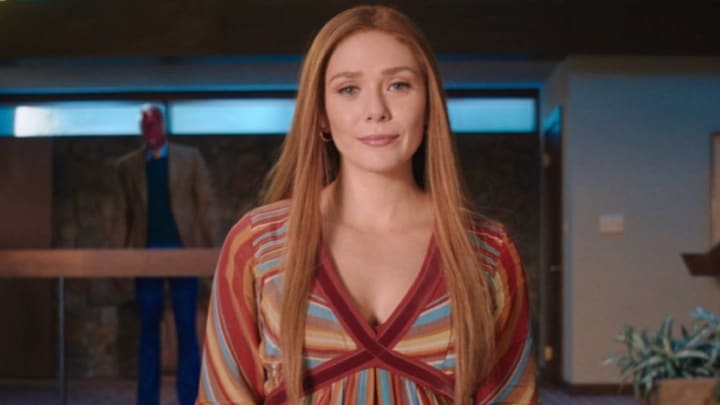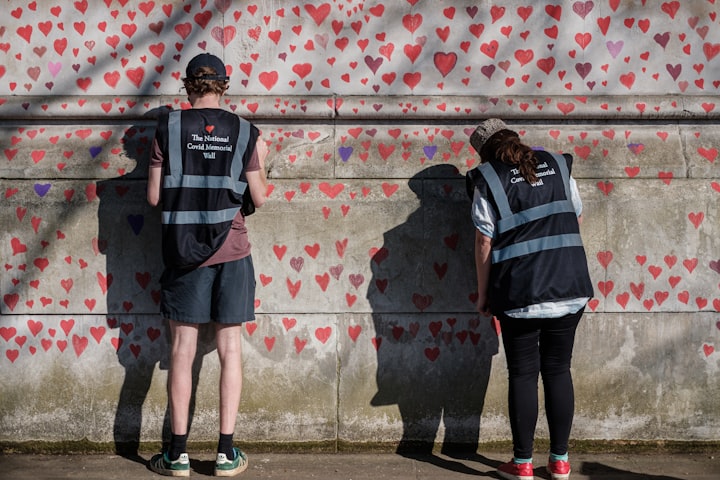WandaVision and The Female Identity
An exploration into WandaVision and the female representation.

WARNING: This article will contain WandaVision spoilers!
If you're a Marvel fan, chances are WandaVision has consumed your waking hours with endless thoughts of mind-blowing conspiracy theories that leave you wondering what's true and what's just speculation.
WandaVision, which releases a new episode every week exclusively to Disney+, has kick started Phase Four of the Marvel Cinematic Universe.
Phase Four features all the Marvel Studios productions set to be released from 2021 through to 2023. This includes (but is not limited to): Black Widow, Captain Marvel 2, Ant-man and The Wasp: Quantumania, WandaVision, She-Hulk and Hawkeye.
These films and television shows are predominantly female superhero-based.
A few years ago I released an article titled "Superheroes and The Female Identity" which explored the representation of women within the superhero genre.
The start of the article states: "In a society that's becoming more open to the idea of treating women as equals (finally!) and with sexism being slowly eradicated, it is interesting to see the binary opposites in representation of women within the superhero genre compared to men."
I'd like to think that since I posted that article we've come a long way from female superheroes being subpar to their male counterparts and the right to be classed as equals is the bare necessity.
With Phase Four, and WandaVision, showing that female superheroes can take the lead, I thought it would be the perfect time to delve into how the female identity in the superhero genre has changed since my last exploration.

WandaVision is unlike anything Marvel has produced before. It isn't like the usual Marvel layout; it's got a confusing genre, an intricate plot and a visual that most Marvel fans seemed doubtful of during the first few episodes.
It seems to the audience that Wanda Maximoff has used her powers to create 'WestView', a world that she deems her home. While doing so, she has stolen Vision's dead body, brought him back to life, and created a whole new life that is disconnected from the outside world.
Additionally, Wanda's power is demonstrated by the conversation between Jimmy Woo and Darcy Lewis. It confirms that Wanda could have defeated Thanos on her own. In episode five Woo says:
"She could have taken out Thanos on her own if he hadn't initiated a blitz."
This power alone suggests that Wanda is just as powerful as her male counterparts and a positive representation has been built. It is important for the female demographic to see this positive representation as it teaches them how powerful women can be. In the past, only male superheroes were considered strong and powerful. (This is also one of the reasons why the male demographic argued that Captain Marvel is not the strongest Avenger - but that's another article in itself!)
The Male Gaze is clearly not on the agenda for WandaVision; there's no sexy outfits or 'damsel in distress' moments. Wanda is strong and there's no need for her to adhere to the want of the male demographic. This is such an important step towards female superheroes becoming equals to male superheroes and encourages the female demographic to identify themselves as equals to men.
Another character that seems to be creating a positive representation of the female identity is Monica Rambeau.

Now, for those Marvel fans who have read the comics, you'll know the importance of Monica Rambeau's entrance to WandaVision and the potential her character has.
In the comics, Monica Rambeau is a superhero called "Photon", who gained her powers by coming into contact with extradimensional energy. In WandaVision, Wanda pushes her through the energy force field surrounding WestView, and so perhaps her superhero journey is about to begin.
Outside of Black Panther, The Marvel Cinematic Universe (in regards to the Disney owned content, not including X-Men who were previously owned by 21st Century Fox) are yet to see a black female superhero that has her own storyline.
This has potential to open up a whole new female demogrpahic. This black, female superhero character helps the young, black women of today feel represented. The integration of Monica Rambeau, and other characters like her, into the MCU gives the female demographic a reason to believe any race can be a hero – they are watching versions of themselves be powerful and strong characters, not just the “token” character. The female identity is not just about white characters, it is about all female identities, and the introduction on Monica Rambeau has helped highlight the importance of this.
It is exciting to see how WandaVision continues to create a positive representation of the female identity, and female superheroes in general. This is a great set up for the rest of Phase Four as it allows Marvel's female demographic to feel as though they're being represented fairly, without any unrealistic expectations.
As Phase Four continues, I cannot wait to see more female-lead superhero shows and movies where they aren't just used for the damsel in distress role, or the defenseless character who can only use her body as a way of getting out of a terrible situation.
That trope is dead, and I can't wait for the trope of badass female superheroes to dominate the superhero genre.
About the Creator
Leigh Hooper
A writer in her twenties with a head full of ideas and a room full of books✨
My Instagram handle is: @leighooper







Comments
There are no comments for this story
Be the first to respond and start the conversation.